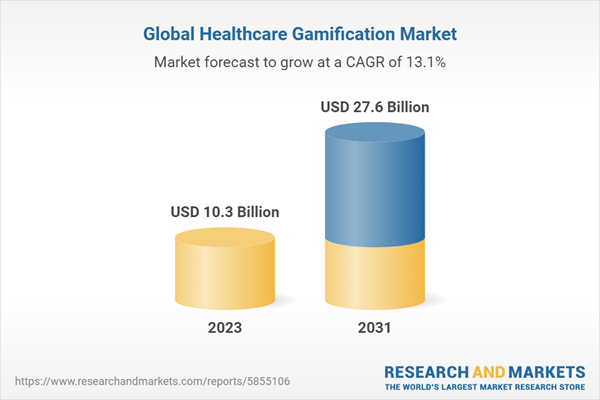Healthcare Gamification: Introduction
Healthcare gamification is the use of gaming elements, mechanics, and design techniques in healthcare settings to engage, motivate, and encourage positive behaviour change among patients, healthcare providers, and other stakeholders. By incorporating game-like elements into healthcare practices, gamification aims to make healthcare experiences more enjoyable, interactive, and rewarding while achieving specific health-related objectives.A few key elements of healthcare gamification include:
- Game Mechanics: Healthcare gamification employs various game mechanics, such as points, badges, levels, challenges, leaderboards, and rewards, to motivate individuals to participate and achieve specific health-related goals
- Goal Setting: Gamification in healthcare often involves setting clear and attainable health goals for individuals. Participants receive rewards or recognition upon achieving these goals, fostering a sense of accomplishment and motivation to continue their healthcare journey
Key Trends in Healthcare Gamification Market
Here are some key trends in the healthcare gamification market:- Increased Adoption of Mobile Health (mHealth) and Wearable Devices: The rise of mobile health apps and wearable devices, such as fitness trackers and smartwatches, has been driving the gamification market in healthcare. These technologies enable seamless integration of gamified elements into users' daily routines, promoting healthier behaviors and lifestyle changes
- Focus on Chronic Disease Management: Healthcare gamification has been increasingly utilized to address chronic disease management. Gamified platforms are being developed to assist patients in managing conditions such as diabetes, obesity, hypertension, and mental health disorders. The goal is to improve patient adherence to treatment plans and foster better disease self-management
- Personalized and Targeted Gamification: To enhance effectiveness, healthcare gamification solutions are becoming more personalized and targeted. By tailoring gaming experiences to individual users' needs and preferences, engagement levels and health outcomes can be optimized
- Integration of Virtual Reality (VR) and Augmented Reality (AR): The integration of virtual reality and augmented reality technologies is gaining traction in healthcare gamification. These immersive technologies offer unique opportunities for patient education, therapy, and rehabilitation programs
- Gamification in Employee Wellness Programs: Healthcare organizations and employers are incorporating gamification into employee wellness initiatives. By encouraging employees to participate in gamified health challenges and competitions, organizations aim to improve employee well-being and reduce healthcare costs
Healthcare Gamification Market Segmentations
The market can be categorised into product, age group, application, end user and region.Market Breakup by Type
- Exercise Games
- Serious Games
- Casual Games
Market Breakup by Application
- Education
- Therapeutics
- Prevention
- Fitness
- Others
Market Breakup by End User
- Enterprise Based
- Consumer Based
Market Breakup by Region
- North America
- Europe
- Asia Pacific
- Latin America
- Middle East and Africa
Healthcare Gamification Market Overview
The healthcare gamification market is driven by several key factors that are shaping the industry's growth and adoption. One of the primary drivers is the increasing use of mobile health (mHealth) apps and wearable devices, which have paved the way for seamless integration of gamified elements into users' daily routines. These technologies promote healthier behaviours and lifestyle changes, making healthcare gamification an attractive solution for patient engagement and behaviour modification. Additionally, the rising prevalence of chronic diseases has led to a greater focus on disease management, with healthcare providers and organizations turning to gamified platforms to improve patient adherence to treatment plans and enhance disease self-management. The trend towards personalized and targeted healthcare solutions has also impacted the gamification market, as developers strive to tailor gaming experiences to individual users' needs and preferences, maximizing engagement and health outcomes. Furthermore, the integration of virtual reality (VR) and augmented reality (AR) technologies is gaining traction, offering unique opportunities for patient education, therapy, and rehabilitation programs.These innovative approaches are drawing interest from both healthcare providers and patients, further propelling the growth of the healthcare gamification market. As the market expands globally and regulatory compliance becomes a crucial consideration, strategic collaborations between gamification solution providers and pharmaceutical companies are also driving the industry's evolution. Overall, healthcare gamification's ability to empower patients, improve adherence, and achieve positive health outcomes is making it a compelling and influential force in the healthcare industry.
Key Players in the Healthcare Gamification Market
The key features of the market report include patent analysis, grants analysis, clinical trials analysis, funding and investment analysis, partnerships, and collaborations analysis by the leading key players. The major companies in Healthcare Gamification market are as follows:- Fitbit Inc
- Microsoft
- Akili Interactive Labs
- Ayogo Health Inc
- Bunchball Inc
- Hubbub Health
- EveryMove
- Mango Health
- Nike
- CogniFit
Table of Contents
Companies Mentioned
- Fitbit Inc.
- Microsoft
- Akili Interactive Labs
- Ayogo Health Inc.
- Bunchball Inc
- Hubbub Health
- EveryMove
- Mango Health
- Nike
- CogniFit
Table Information
| Report Attribute | Details |
|---|---|
| No. of Pages | 140 |
| Published | July 2023 |
| Forecast Period | 2023 - 2031 |
| Estimated Market Value ( USD | $ 10.3 Billion |
| Forecasted Market Value ( USD | $ 27.6 Billion |
| Compound Annual Growth Rate | 13.1% |
| Regions Covered | Global |
| No. of Companies Mentioned | 10 |









